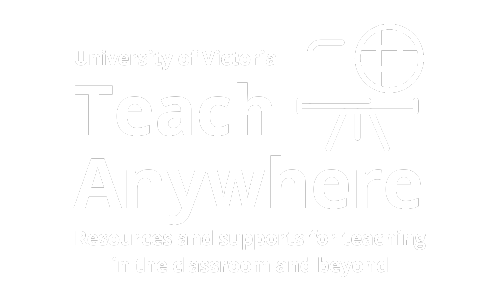Pierre-Luc Landry developed a podcast program for French 394: Children’s and Young Adult Literature in French, which incorporates various options for comprehension. First and foremost, the program activates and supplies background knowledge by immersing students in the exploration and analysis of a diverse range of French literary works for young audiences (3.1). The program prompts students to tap into their prior knowledge of literature while encouraging them to contextualize and appreciate the significance of these works. Moreover, the program skillfully highlights patterns, critical features, big ideas, and relationships within children’s literature, guiding learners to distinguish key elements and recognize meaningful connections (3.2).
Furthermore, this initiative effectively guides information processing and visualization as students actively participate in researching, writing, recording, and editing the podcast content (3.3). By involving them in the production process, it not only facilitates the comprehension of literary concepts but also empowers students to visualize and organize their thoughts effectively. Lastly, the program maximizes transfer and generalization by extending learning beyond the classroom (3.4). Students are tasked with producing content for radio Victoria broadcast, applying their comprehension of children’s literature in real-world contexts. This practical application encourages them to transfer their knowledge and insights, ultimately promoting comprehensive and meaningful learning experiences.

© Cédric Trahan
Pierre-Luc Landry
French and Francophone Studies
View the principle in action
- Litterature Jeunesse UVic – Podcast on Radio Victoria
- Podcast description
- Pierre-Luc Landry website

